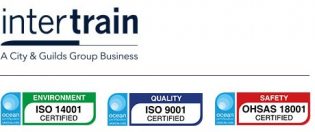The Institute of Leadership and Management (ILM), an accredited centre under the Alternative Partnership framework, regularly gathers valuable insights from both national and international sources. These insights—grounded in empirical research, statistical data, and first-hand accounts—inform practical recommendations for current and future business leaders. In a series of recent interviews, featured in ILM’s Leading Edge publication, several successful entrepreneurs shared their experiences and offered thoughtful advice for those considering the leap into business ownership.
The Value of Self-Belief and Connection: Emma Price’s Journey
Emma Price, Director of the communications consultancy Be Heard Media, shared her entrepreneurial journey and the key principles that guided her path. Like many small business founders, Emma started out by drawing on the wisdom of her network—friends and acquaintances who had already taken the plunge into entrepreneurship. This willingness to listen, learn, and iterate helped her shape a viable business model in the early stages.
A strong advocate for mindset and resilience, Emma emphasises the importance of self-belief for any aspiring entrepreneur. Without a doubt, starting a business can be daunting. However, maintaining a positive, forward-looking attitude is essential. Positive thinking boosts productivity and supports personal and professional development. One way to foster this mindset, she advises, is by surrounding oneself with like-minded individuals—people who understand the unique challenges of business ownership and who can offer both support and perspective.
Emma also underscores the importance of networking. For her, nurturing both new relationships and rekindling older ones has been a vital strategy—not only for business opportunities but also for emotional support. She highlights that while having a great idea is a good start, turning it into a sustainable enterprise requires planning, financial foresight, and a solid understanding of costs, conversions, and potential pitfalls.
The Fundamentals of Cash Flow and Adaptability: John Davies’ Perspective
John Davies, founder and CEO of The Just Loans Group PLC, brings a pragmatic voice to the conversation. With years of experience in finance and lending, John offers a sobering reminder: “Cash flow is king.” While profitability may be the long-term goal, he warns that without consistent cash flow, even the most promising businesses can fail. Managing cash carefully, especially in the early stages, is critical for survival.
John also raises a broader concern about the lack of business education in the UK. He argues that basic business training should be a mandatory part of any start-up founder’s journey, likening it to the foundational knowledge required in any other profession. Entrepreneurs, he suggests, are too often thrown into the deep end without the tools or training they need to succeed.
A key theme in John’s advice is adaptability. In an ever-evolving business landscape, being able to pivot—whether in response to market demands, technological changes, or customer expectations—is essential. He recommends that entrepreneurs embrace technology wherever possible. Done right, even subtle innovations can dramatically improve customer service and operational efficiency.
Echoing Emma’s insights, John reinforces the importance of human connection in business. A strong support system and a team of passionate, skilled specialists can make all the difference. “Surround yourself with people who believe in what you’re building,” he says. “It’s one of the best investments you can make.”
Building with Purpose
The stories of Emma Price and John Davies offer a compelling blueprint for aspiring business owners. While their paths and industries differ, both highlight recurring themes: the importance of mindset, the value of community and connection, the necessity of financial clarity, and the power of adaptability.
Whether you’re still in the dreaming stage or preparing to launch your business, these insights serve as a timely reminder that entrepreneurship is as much about people and planning as it is about products and profit. Surround yourself with those who inspire you, equip yourself with the right knowledge, and always keep an eye on your financial foundation—and your business will be far better positioned for long-term success.
Quick-Fire Key Takeaways for Aspiring Entrepreneurs
- Self-Belief
As Emma Price emphasised, belief in yourself is the foundation of entrepreneurial success. Starting a business involves uncertainty, risk, and setbacks. Without confidence in your vision and capabilities, it’s easy to lose momentum. Self-belief fuels persistence and allows you to take decisive action when it matters most. - Networking
Building a business is not a solo endeavour. Networking opens doors to potential clients, collaborators, mentors, and even investors. Emma highlighted the importance of both maintaining new relationships and rekindling old ones. These connections often lead to unexpected opportunities and valuable advice. - Like-Minded Individuals
Surrounding yourself with people who understand the entrepreneurial journey—its highs and lows—can offer much-needed encouragement and insight. Both Emma and John stressed the importance of a supportive environment made up of peers who share your drive and understand your challenges. - Planning & Financial Foresight
A strong idea needs a solid plan to thrive. Emma pointed out that financial barriers can hold aspiring entrepreneurs back, but careful planning—particularly in terms of forecasting expenses and revenue—can mitigate risk. A clearly defined business model helps ensure sustainability and prepares you for growth. - Business Education
According to John Davies, the lack of formal business education in the UK leaves many founders unprepared. Gaining basic knowledge in finance, operations, marketing, and management can dramatically improve your chances of success. Whether through formal qualifications or self-directed learning, investing in your business acumen is non-negotiable. - Embracing Technology
John also highlighted how technology can enhance customer experience and streamline operations. Whether it’s through automation, digital marketing tools, or customer relationship management systems, smart tech use allows small businesses to compete efficiently and scale effectively. - Human Connection
Despite the rise of digital tools, personal relationships remain a cornerstone of business success. Utilising available technologies is an essential skill, however meaningful interaction and engagement remains an essential skill. Emma and John both agreed that genuine human interaction builds trust—with customers, employees, and partners. A passionate and skilled team, along with meaningful client relationships, can be a game-changer in long-term growth.
Developing Leaders
As a manager or leader, there’s always something new to learn or a skill you can improve and develop. Organisations need to support managers and leaders in this development, but you also need to invest in yourself.
Getting formal leadership and management training will not only help you build your leadership skills, it will also help you grow in confidence, and increase your chances of career progression.
Alternative Partnership delivers ILM-accredited Leadership and Management training programmes to support you and your teams in gaining formal, nationally recognised qualifications.
Find out more about our current ILM courses here or get in touch to discuss how our services could benefit you.












